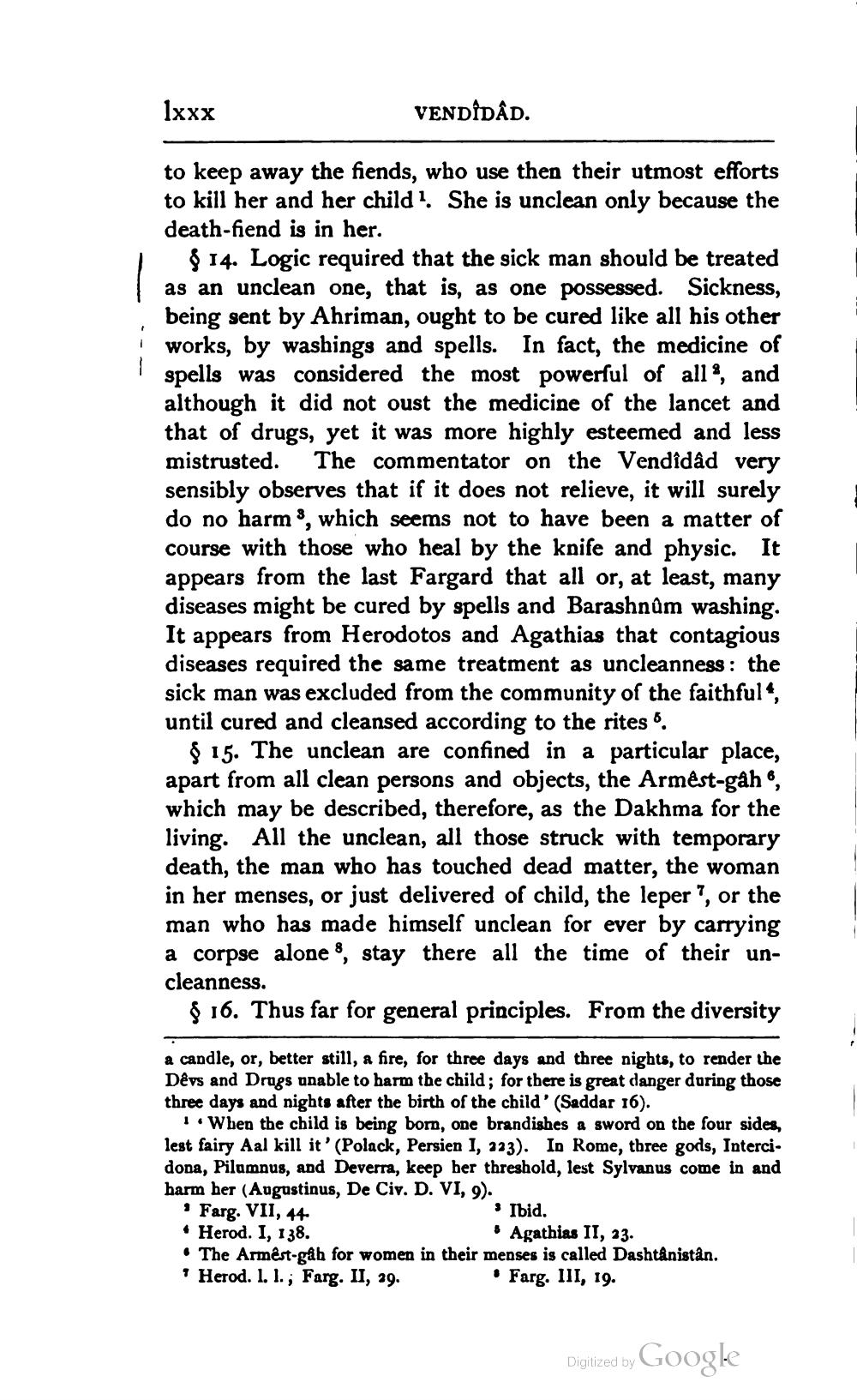________________
1xxx
to keep away the fiends, who use then their utmost efforts to kill her and her child1. She is unclean only because the death-fiend is in her.
VENDÎDÂD.
§14. Logic required that the sick man should be treated as an unclean one, that is, as one possessed. Sickness, being sent by Ahriman, ought to be cured like all his other works, by washings and spells. In fact, the medicine of spells was considered the most powerful of all, and although it did not oust the medicine of the lancet and that of drugs, yet it was more highly esteemed and less mistrusted. The commentator on the Vendîdâd very sensibly observes that if it does not relieve, it will surely do no harm3, which seems not to have been a matter of course with those who heal by the knife and physic. It appears from the last Fargard that all or, at least, many diseases might be cured by spells and Barashnûm washing. It appears from Herodotos and Agathias that contagious diseases required the same treatment as uncleanness: the sick man was excluded from the community of the faithful, until cured and cleansed according to the rites".
§ 15. The unclean are confined in a particular place, apart from all clean persons and objects, the Armêst-gâh ®, which may be described, therefore, as the Dakhma for the living. All the unclean, all those struck with temporary death, the man who has touched dead matter, the woman in her menses, or just delivered of child, the leper, or the man who has made himself unclean for ever by carrying a corpse alone, stay there all the time of their uncleanness.
§ 16. Thus far for general principles. From the diversity
a candle, or, better still, a fire, for three days and three nights, to render the Dêvs and Drugs unable to harm the child; for there is great danger during those three days and nights after the birth of the child' (Saddar 16).
1. When the child is being born, one brandishes a sword on the four sides, lest fairy Aal kill it' (Polack, Persien I, 223). In Rome, three gods, Intercidona, Pilumnus, and Deverra, keep her threshold, lest Sylvanus come in and harm her (Augustinus, De Civ. D. VI, 9).
• Ibid.
'Farg. VII, 44.
Herod. I, 138.
Agathias II, 23.
• The Armêst-gâh for women in their menses is called Dashtânistân. Herod. 1. 1., Farg. II, 29. • Farg. III, 19.
Digitized by
Google




